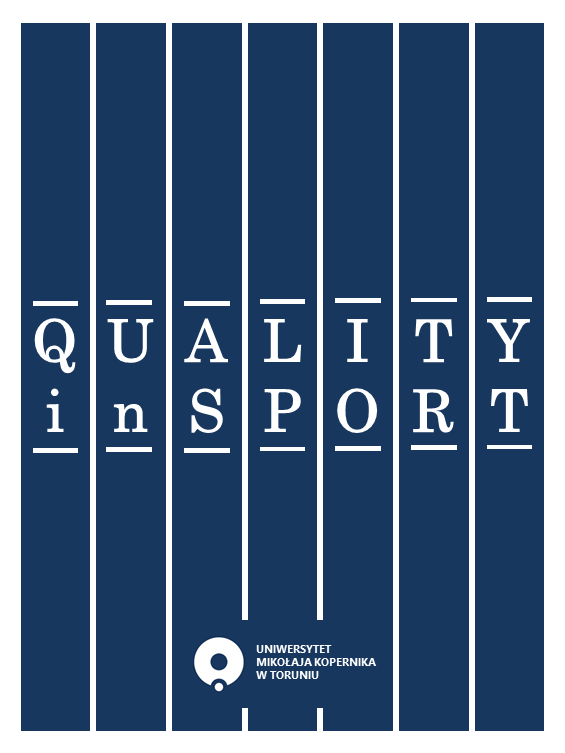Physical Exercise as a Therapeutic Strategy in Alzheimer’s Disease: Mechanisms and Benefits
DOI:
https://doi.org/10.12775/QS.2025.41.58848Keywords
Alzheimer's disease, physical exercise, neuroprotecion, cognitive decline, BDNF, NeuroinflammationAbstract
Introduction and Purpose
Alzheimer’s disease (AD) is a progressive neurodegenerative disorder with no definitive cure. This article explores the impact of physical exercise on AD risk reduction and disease progression, emphasizing its molecular, cognitive, and physiological benefits.
Materials and Methods
A comprehensive review of recent studies, meta-analyses, and clinical trials was conducted to evaluate the effects of various exercise modalities on AD-related pathophysiology, cognitive decline, and neuroprotection.
Results
Findings indicate that regular physical activity is associated with a 33% lower risk of developing AD. Exercise interventions lasting over 16 weeks significantly improve cognitive function, as measured by MMSE and ADL scores. Mechanistically, exercise enhances BDNF levels, promotes Aβ clearance, reduces tau pathology, mitigates neuroinflammation, and improves cerebrovascular health.
Conclusion
Physical exercise is a cost-effective, non-invasive intervention for AD prevention and management. Future research should focus on optimizing individualized exercise protocols and leveraging digital health technologies for long-term adherence and effectiveness.
References
1. Xiao Y, Fan Y, Feng Z. A meta-analysis of the efficacy of physical exercise interventions on activities of daily living in patients with Alzheimer's disease. Front Public Health. 2024;12:1485807. Published 2024 Nov 27. doi:10.3389/fpubh.2024.1485807
2. Bonanni R, Cariati I, Cifelli P, et al. Exercise to Counteract Alzheimer's Disease: What Do Fluid Biomarkers Say?. Int J Mol Sci. 2024;25(13):6951. Published 2024 Jun 25. doi:10.3390/ijms25136951
3. Ornish D, Madison C, Kivipelto M, et al. Effects of intensive lifestyle changes on the progression of mild cognitive impairment or early dementia due to Alzheimer's disease: a randomized, controlled clinical trial. Alzheimers Res Ther. 2024;16(1):122. Published 2024 Jun 7. doi:10.1186/s13195-024-01482-z
4. De la Rosa A, Olaso-Gonzalez G, Arc-Chagnaud C, et al. Physical exercise in the prevention and treatment of Alzheimer's disease. J Sport Health Sci. 2020;9(5):394-404. doi:10.1016/j.jshs.2020.01.004
5. Sepúlveda-Lara A, Sepúlveda P, Marzuca-Nassr GN. Resistance Exercise Training as a New Trend in Alzheimer's Disease Research: From Molecular Mechanisms to Prevention. Int J Mol Sci. 2024;25(13):7084. Published 2024 Jun 27. doi:10.3390/ijms25137084
6. López-Ortiz S, Pinto-Fraga J, Valenzuela PL, et al. Physical Exercise and Alzheimer's Disease: Effects on Pathophysiological Molecular Pathways of the Disease. Int J Mol Sci. 2021;22(6):2897. Published 2021 Mar 12. doi:10.3390/ijms22062897
7. Wang M, Zhang H, Liang J, Huang J, Chen N. Exercise suppresses neuroinflammation for alleviating Alzheimer's disease. J Neuroinflammation. 2023;20(1):76. Published 2023 Mar 19. doi:10.1186/s12974-023-02753-6
8. Pinho RA, Muller AP, Marqueze LF, Radak Z, Arida RM. Physical exercise-mediated neuroprotective mechanisms in Parkinson's disease, Alzheimer's disease, and epilepsy. Braz J Med Biol Res. 2024;57:e14094. Published 2024 Nov 25. doi:10.1590/1414-431X2024e14094
9. Huuha AM, Norevik CS, Moreira JBN, et al. Can exercise training teach us how to treat Alzheimer's disease?. Ageing Res Rev. 2022;75:101559. doi:10.1016/j.arr.2022.101559
10. Devanand DP, Masurkar AV, Wisniewski T. Vigorous, regular physical exercise may slow disease progression in Alzheimer's disease. Alzheimers Dement. 2023;19(4):1592-1597. doi:10.1002/alz.12946
11. Iso-Markku P, Kujala UM, Knittle K, Polet J, Vuoksimaa E, Waller K. Physical activity as a protective factor for dementia and Alzheimer's disease: systematic review, meta-analysis and quality assessment of cohort and case-control studies. Br J Sports Med. 2022;56(12):701-709. doi:10.1136/bjsports-2021-104981
12. Sanders LMJ, Hortobágyi T, Karssemeijer EGA, Van der Zee EA, Scherder EJA, van Heuvelen MJG. Effects of low- and high-intensity physical exercise on physical and cognitive function in older persons with dementia: a randomized controlled trial. Alzheimers Res Ther. 2020;12(1):28. Published 2020 Mar 19. doi:10.1186/s13195-020-00597-3
13. Cantón-Suárez A, Sánchez-Valdeón L, Bello-Corral L, Cuevas MJ, Estébanez B. Understanding the Molecular Impact of Physical Exercise on Alzheimer's Disease. Int J Mol Sci. 2024;25(24):13576. Published 2024 Dec 18. doi:10.3390/ijms252413576
14. Pedrinolla A, Venturelli M, Fonte C, et al. Exercise training improves vascular function in patients with Alzheimer's disease. Eur J Appl Physiol. 2020;120(10):2233-2245. doi:10.1007/s00421-020-04447-w
15. Zhao R. Exercise mimetics: a novel strategy to combat neuroinflammation and Alzheimer's disease. J Neuroinflammation. 2024;21(1):40. Published 2024 Feb 2. doi:10.1186/s12974-024-03031-9
16. Ionescu-Tucker A, Cotman CW. Emerging roles of oxidative stress in brain aging and Alzheimer's disease. Neurobiol Aging. 2021;107:86-95. doi:10.1016/j.neurobiolaging.2021.07.014
17. Delgado-Peraza F, Nogueras-Ortiz C, Simonsen AH, et al. Neuron-derived extracellular vesicles in blood reveal effects of exercise in Alzheimer's disease [published correction appears in Alzheimers Res Ther. 2024 Jan 23;16(1):18. doi: 10.1186/s13195-023-01371-x.]. Alzheimers Res Ther. 2023;15(1):156. Published 2023 Sep 20. doi:10.1186/s13195-023-01303-9
18. Xu L, Liu R, Qin Y, Wang T. Brain metabolism in Alzheimer's disease: biological mechanisms of exercise. Transl Neurodegener. 2023;12(1):33. Published 2023 Jun 26. doi:10.1186/s40035-023-00364-y
19. Jaberi S, Fahnestock M. Mechanisms of the Beneficial Effects of Exercise on Brain-Derived Neurotrophic Factor Expression in Alzheimer's Disease. Biomolecules. 2023;13(11):1577. Published 2023 Oct 26. doi:10.3390/biom13111577
20. Scheltens P, De Strooper B, Kivipelto M, et al. Alzheimer's disease. Lancet. 2021;397(10284):1577-1590. doi:10.1016/S0140-6736(20)32205-4
21. Baranowski BJ, Marko DM, Fenech RK, Yang AJT, MacPherson REK. Healthy brain, healthy life: a review of diet and exercise interventions to promote brain health and reduce Alzheimer's disease risk. Appl Physiol Nutr Metab. 2020;45(10):1055-1065. doi:10.1139/apnm-2019-0910
22. Roy SK, Wang JJ, Xu YM. Effects of exercise interventions in Alzheimer's disease: A meta-analysis. Brain Behav. 2023;13(7):e3051. doi:10.1002/brb3.3051
23. Mendonça DCB, Fernandes DR, Hernandez SS, Soares FDG, Figueiredo K, Coelho FGM. Physical exercise is effective for neuropsychiatric symptoms in Alzheimer's disease: a systematic review. Arq Neuropsiquiatr. 2021;79(5):447-456. doi:10.1590/0004-282X-ANP-2020-0284
Downloads
Published
How to Cite
Issue
Section
License
Copyright (c) 2025 Aleksandra Bartoszek, Karolina Kopeć, Julia Adamiuk, Agnieszka Marut, Marta Biskup, Jagoda Misiuk, Adriana Skuba, Katarzyna Załuska, Agnieszka Świdniak, Sylwia Nykiel

This work is licensed under a Creative Commons Attribution-NonCommercial-ShareAlike 4.0 International License.
Stats
Number of views and downloads: 464
Number of citations: 0



